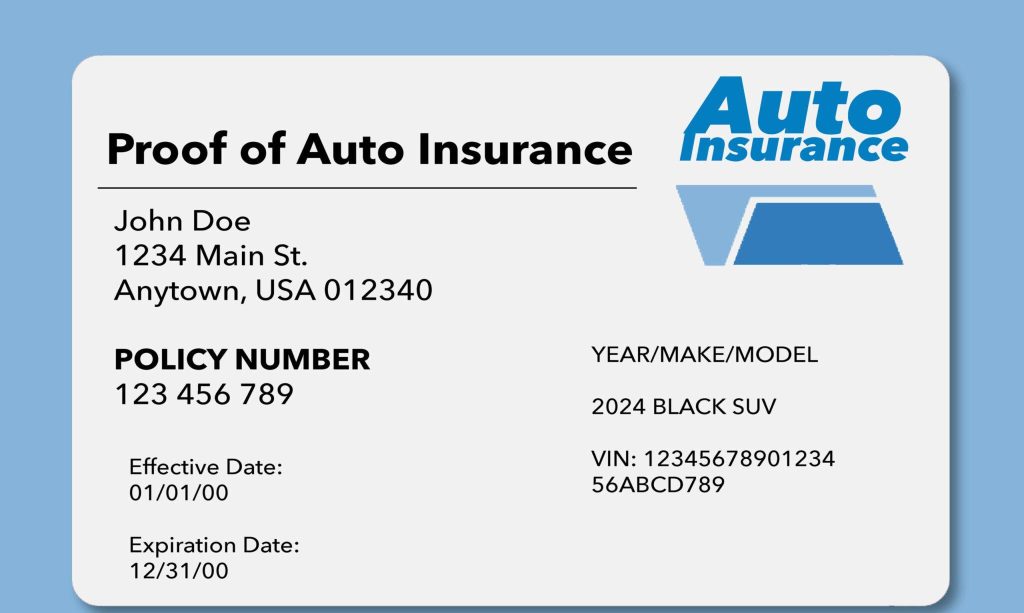Choosing the right auto insurance policy can feel overwhelming with so many options, coverage types, and fine print details to consider. Yet, securing the right coverage is essential to protect yourself, your vehicle, and your finances on the road. In this article, we’ll break down expert tips to help you navigate the complexities of auto insurance, so you can make informed decisions with confidence. Whether you’re a first-time buyer or looking to update your current policy, these insights will guide you toward the best coverage for your unique needs.
Table of Contents
- Understanding Different Types of Auto Insurance Coverage
- Assessing Personal Needs and Driving Habits for Optimal Protection
- Evaluating Insurance Provider Reputation and Customer Service
- Tips for Comparing Quotes and Finding Cost-Effective Policies
- The Conclusion
Understanding Different Types of Auto Insurance Coverage
Selecting the right auto insurance involves understanding the variety of coverage options available, each designed to protect you in specific situations. Liability coverage is often required by law and covers damages to others if you’re at fault in an accident. On the other hand, collision coverage pays for repairs to your vehicle after an accident, regardless of fault. Then there are comprehensive policies which protect against non-collision-related damages like theft, vandalism, or natural disasters. Knowing these basic types helps you evaluate what fits your lifestyle and financial needs.
Additionally, many insurers offer specialized add-ons that can provide extra peace of mind. These include:
- Personal injury protection covering medical expenses for you and passengers.
- Uninsured/underinsured motorist coverage safeguarding you against drivers without adequate insurance.
- Gap insurance which covers the difference between your car’s value and what you owe on a loan or lease.
Assessing these options carefully ensures that your policy aligns with your risk tolerance and budget, ultimately providing well-rounded protection tailored to your unique situation.
Assessing Personal Needs and Driving Habits for Optimal Protection
Before selecting an auto insurance policy, it’s crucial to evaluate your individual circumstances and driving patterns thoroughly. Consider factors such as how often you drive, the types of roads you frequent, and the typical distances covered on a daily or weekly basis. For instance, a city driver facing heavy traffic may benefit from comprehensive coverage that handles fender-benders and theft, while a rural driver might prioritize policies with roadside assistance or coverage for wildlife-related incidents. Additionally, understanding your vehicle’s age, safety features, and overall value can influence the level of insurance you should opt for, ensuring you’re neither underinsured nor paying for unnecessary coverage.
Reflect on these key areas to tailor coverage effectively:
- Your annual mileage and commuting routes
- Driving frequency and primary vehicle use (personal, work, leisure)
- Past driving history and claims experience
- Risk tolerance and budget constraints
- Specific personal needs, such as family size or shared driving responsibilities
By carefully weighing these elements, you can pinpoint which policy features will provide optimal protection and peace of mind, avoiding costly gaps or overlaps in your coverage.
Evaluating Insurance Provider Reputation and Customer Service
When selecting an auto insurance provider, the company’s reputation can be as important as the coverage options themselves. Trustworthy insurers often have a proven track record of financial stability, prompt claims processing, and transparent communication. Research independent ratings from agencies like AM Best or J.D. Power to gauge the insurer’s performance. Additionally, dive into online reviews and testimonials to capture real customer experiences—look for patterns that highlight responsiveness, fairness in claims settlements, and overall satisfaction.
Excellent customer service can make all the difference when you need support during stressful situations such as accidents or disputes. Prioritize companies that offer multiple channels for assistance, including 24/7 phone support, live chat, and mobile apps. Consider asking friends or family about their interactions with insurers or even test customer service responsiveness yourself by reaching out with questions before committing. Key factors to evaluate include:
- Average claim resolution time
- Availability of personalized assistance
- Transparency in policy terms and billing
- Ease of accessing policy information online
Tips for Comparing Quotes and Finding Cost-Effective Policies
When evaluating multiple auto insurance quotes, it’s essential to look beyond just the price tag. Begin by breaking down each quote into its core components — coverage limits, deductibles, and any additional benefits. Pay special attention to what’s included and what’s excluded in each policy; a cheaper quote might save money upfront but could leave you vulnerable to costly out-of-pocket expenses later. Always consider the insurer’s reputation, claims processing speed, and customer service quality, as these factors significantly impact your overall satisfaction and protection.
To ensure you’re truly securing a cost-effective policy, establish a checklist of must-haves, such as:
- Comprehensive and collision coverage limits that fit your needs
- Reasonable deductibles that balance between premium cost and out-of-pocket risk
- Discounts for safe driving, bundling policies, or vehicle safety features
- Flexible payment options to manage premiums without added fees
Comparing quotes using these criteria will streamline your decision-making and help pinpoint the policy that delivers the best value without compromising on essential coverage.
The Conclusion
Choosing the right auto insurance policy doesn’t have to be overwhelming. By understanding your coverage needs, comparing quotes, and considering expert advice, you can find a plan that offers the protection you deserve at a price that fits your budget. Remember, the best policy is one that gives you peace of mind on the road—so take the time to review your options carefully and make an informed decision. Safe driving!




